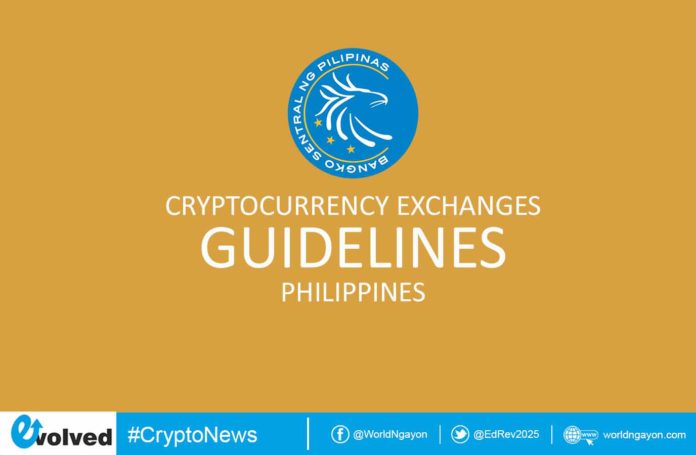The Banko Sentral ng Pilipinas (BSP) has released a Cryptocurrency Exchanges Guidelines for the Philippines, while bitcoin and it underlying technology – the blockchain are becoming more popular among the Filipinos.
Bitcoin is a form of electronic cash or digital cash that can be sent from user to user, on the peer to peer network, directly without the need for central authorities or intermediaries such as banks, thus reducing transaction fees. Bitcoin transactions are recorded in a decentralize public ledger called blockchain.
According to BSP, they are not promoting virtual currencies (VC) such as bitcoin since it is neither issued or guaranteed by a central bank nor backed by any commodity but it is their policy to provide an environment that encourages financial innovation.
Bangko Sentral recognizes that cryptocurrency has the potential to revolutionize the delivery of financial services, particularly for payments and remittance, in view of their ability to provide faster and more economical transfer of funds, both domestic and international, and may further support financial inclusion.
These benefits, however, should be considered along with the corresponding risks in cryptocurrency exchanges, considering the higher degree of anonymity involved, the velocity of transactions, volatility of prices and global accessibility.
With its nature and characteristics, cryptocurrency may also pose risks in money laundering (ML) and terrorists financing (TF). “This is where BSP comes in, to avoid such irregularities and to uphold consumer protection,” BSP said on their press release.
“Cryptocurrency exchanges are needed to be regulated especially when they are involved in the delivery of financial services, particularly, for payments and remittances, which have material impact on anti-money laundering (AML) and combating the financing of terrorism (CFT), consumer protection and financial stability.”
Once fiat currency is exchanged or converted into cryptocurrency, it becomes easily transferrable, facilitating expedient movement or transfer of funds and payment services, among others. In this manner, they are considered similar to remittance and transfer companies, as being regulated under Republic Act No. 9160 or the Anti-Money Laundering Act of 2001.
The newly signed guidelines, published under circular no. 944 series of 2017, will establish the rules and regulations governing operations of cryptocurrency exchanges in the Philippines.
The Cryptocurrency Exchanges Guidelines will also be incorporated as Section 4512N of the Manual of Regulations for Non-Bank Financial Institutions (MORNBFI) of the Banko Sentral ng Pilipinas.
ALSO READ: CoinsPH to launch Cryptocurrency Exchange in the Philippines





